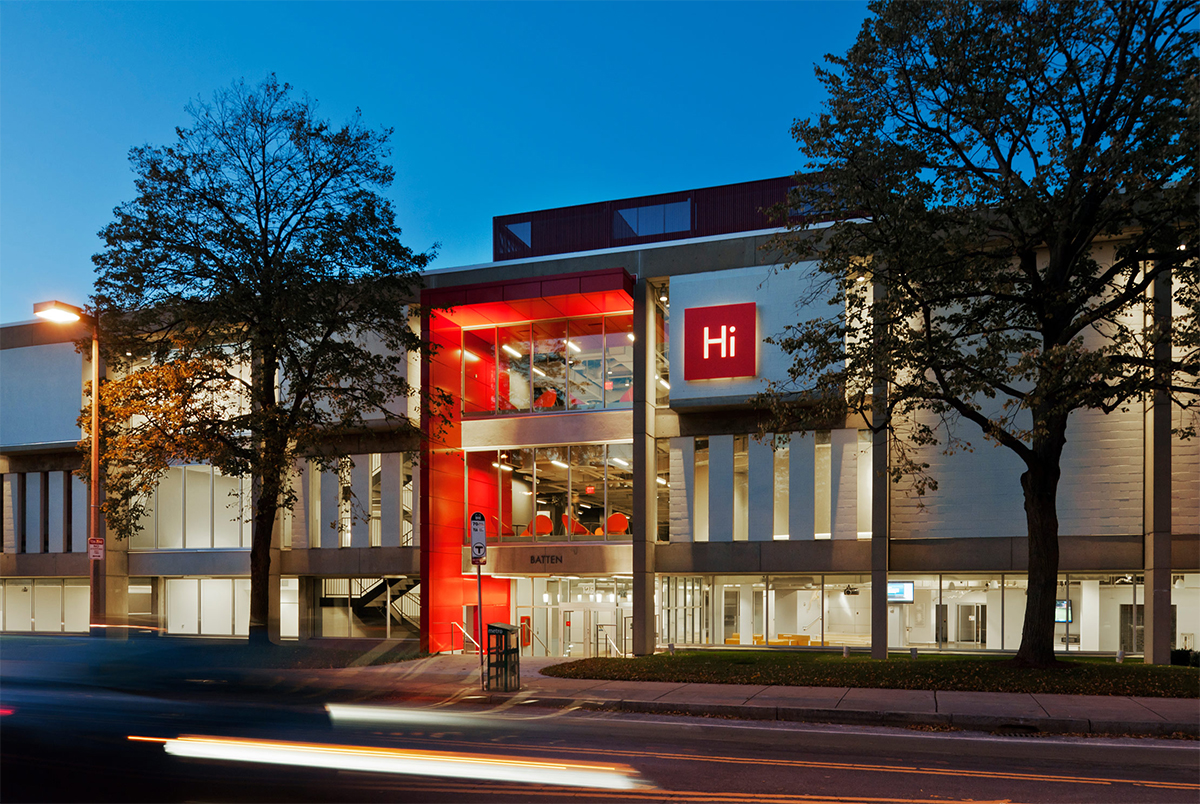Q&A: Jodi Goldstein Shares Her Unconventional Path to the Harvard i-lab

Image Provided
Jodi Goldstein has always pursued an unconventional path. When you grow up living in a hotel in rural Vermont, the “unconventional” starts early.
“My parents sold everything they owned in their mid-20s and bought a hotel,” says Goldstein, who is the managing director of the Harvard Innovation Lab. “They wanted nothing more than for me to go to the Cornell School of Hotel Administration and take over the business.”
But Goldstein’s first job out of college (she ultimately ended up attending the University of Vermont) was at General Electric instead. And when she realized the corporate life wasn’t for her, she went to work in venture capital—a role that sparked her interest in entrepreneurship and placed her in the unexpected spot she’s in today.
Part startup incubator, part co-working space, the entrepreneurship center continues to focus on fostering innovation university-wide—and Goldstein has played a significant role. She has helped flesh out the center’s programming, created funding opportunities for student entrepreneurs, and spearheaded the Launch Lab, a startup incubator for Harvard alumni.
When founding managing director Gordon Jones announced in February 2015 he would be stepping down to serve as the inaugural dean of Boise State’s College of Innovation and Design, Goldstein had proven she’d be a more than suitable successor. One year later, we are taking a look back at how Goldstein got to the i-lab and looking ahead to where she sees education, and the innovation economy, headed next.
Your first job out of college was working as a consultant for General Electric. What do you think of the company’s move to Boston?
I was there during the Jack Welch days. They were so innovative back then as a giant multi-national conglomerate; I was in awe of their ability to be so nimble. Now, as they’re trying to continue to evolve and stay relevant, they’re picking up and moving to a different ecosystem. I think it makes a lot of sense. It’s great for Boston and it’s great for GE. Industry is craving innovation. So many companies are innovating from within, but that’s not enough. That’s why startups exist—because big companies can’t innovate fast enough.
What prompted your transition into venture capital?
I had a blast at GE, but I realized I wasn’t a corporate person. I went from one of the biggest companies in the world to working with the smallest, early-stage companies [at TA Associates]. I wanted to see from the investor side what made them succeed.
What were some of those early-stage companies you spoke with?
One was Kinko’s. Another was Rembrandt Toothpaste. The founder [Dr. Robert Ibsen] was a dentist and thought the toothpaste on the market was terrible. I visited him in San Diego at his dentist office. His company was taking off like crazy.
Can you walk us through some of your entrepreneurial experiences?
I graduated in the mid ‘90s when the Internet was just an idea people were starting to talk about; my Harvard Business School class was the first to have email. But I was interested in new business models and paradigms, and the Internet looked like an opportunity to have all of that.
There was PlanetAll, which was LinkedIn and Facebook 10 years too early. We acquired over a million customers, but didn’t have a way to monetize. Amazon approached us [in 1998 and acquired the company for more than $100 million]. At the time, it was a great exit, but it breaks my heart to this day that they never did anything with the product. It was a monetary success, but I look at it as a failure.
I later joined Mobicious, which morphed into SnapMyLife and was a precursor to Instagram. It’s like I can see the future, but I can’t. People [in 2007] just weren’t sharing photos yet. I tell our students that timing is crucial; you have to test the market early.
But around 2008, my family and I were taking pictures of wine labels with our handy, new iPhone that had just come out. Apple was just about to launch this thing called the App Store and we thought, “Wouldn’t it be great to have this virtual wine cellar?” Drync was one of the first alcohol apps ever and let you research and remember wines. It was fun playing with a new distribution channel, but it became clear that my cofounder really believed it was a company and I always looked at it as a product. To his credit, he stuck with it.
Why did you develop the Harvard Launch Lab?
As soon as students graduated, we had to kick them out. But having this community, and the resources and connections—it’s so important to future success. My only goal is to help these companies succeed, and I can’t do that if I cut them off after graduation. It’s important to build great companies here in Boston, but we need to give them a reason to stay.
What has it been like being a woman working in male-dominated industries?
I guess I’m sort of an anti-feminist. I don’t think women should be given special treatment. I get asked, “Why don’t you have women’s programs?” I think that’s insulting. Do I need [a workshop] “How to Raise Money for Females,” instead of, “How to Raise Money?” Women don’t need special treatment; they are incredibly smart.
But it is a problem. There are no women in venture capital and not enough women in tech. We need to inspire and support them and give them every chance of succeeding now, while they’re still students. If you look at the demographics of the i-lab, it’s close to 50 percent female founders. Whatever’s broken is broken a little bit down the line.
This interview has been edited and condensed.


